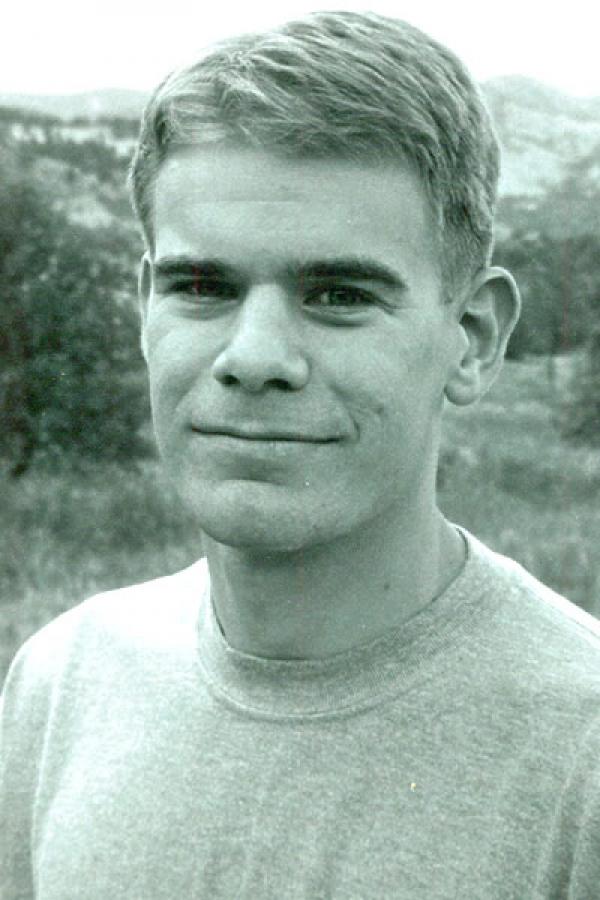Nick Arvin

Photo by Steve Arvin
Bio
Nick Arvin is a graduate of the Iowa Writers' Workshop and the author of two books: In the Electric Eden: Stories and Articles of War, a novel which won the Rosenthal Award from the American Academy of Arts and Letters, the Boyd Award from the American Library Association, and the Colorado Book Award. He is also the recipient of a Michener Fellowship and an Isherwood Foundation Grant. An engineer by training, he has worked in the automotive, forensic, and power industries. He lives in Denver, Colorado; and can be found at www.nickarvin.com.
Author's Statement
I write slowly. Staring at the empty page. Staring out the window. Jotting down a few words. More staring. It's an unwieldy, exhausting, addictive process for which there exists no technological shortcut, and I hope that there never will. But because it is both terribly time consuming and embarrassingly non-lucrative, and especially because I now have a young son at home (also terribly time consuming and embarrassingly non-lucrative), this NEA Fellowship comes as welcome, wonderful assistance and affirmation.
My thanks to the NEA for its support of writers and writing, and I hope that this support will help us as writers to find ways of rebuilding - of re-inspiring - the culture of reading in this country.
From the short story "Along the Highways"
Graham had followed them out of the Detroit suburbs and halfway to Flint, and he felt sure that they were going to Lindsey's family's cottage on the lake.
They took the I-475 loop through the silent smokestacks, the rusting buildings, and the empty, pitted concrete parking lots of Flint. North of the city, rejoining I-75, they were again amid open fields and trees. Billboards approached at regular intervals, like incoming waves. Traffic moved at eighty miles per hour. Graham no longer made any attempt to hide from view. He felt aggrieved and bewildered. He knew that Doug had met Lindsey once or twice, but that they should be together in Doug's car was bizarre, more or less inexplicable within the parameters of their relationship as Graham knew it. Franklin, Lindsey, and Doug - these were the most important people in Graham's life, and it was inevitable that they had met. But Graham had certainly never noticed any significant interaction between Doug and Lindsey. The only event he could recall clearly was a party at Lindsey and Franklin's, where Doug had drunk too much and spilled most of a glass of beer over some woman's blouse.
Nonetheless, when Graham's cell phone rang and he saw Doug's number on the display, he suffered the guilt of a voyeur discovered. "Hello?" he said, trying to sound as if he did not know who could be calling.
"Graham."
"Doug?"
"That you back there?"
"Behind you?"
"Yes?"
Graham said, "Well, I don't know. I mean - I guess so, Doug."
Several seconds went by. Both cars flickered through the brief concrete darkness below an overpass. Finally, Graham said, "Is that Lindsey up there with you?"
"Yeah. She is."
"She's with - It is Lindsey, my brother's wife?"
"Franklin's widow."
"Franklin - Well. He hasn't been dead very long, Doug. I mean-"
"Graham, I'm sorry. This is pretty awkward."
Graham coughed. After a moment, he hung up. It occurred to Graham that he had always despised Doug a little. Doug was one of those people who would laugh without even having heard the joke, only to please, to signal his harmony with the group. Doug Doggy. He was the kind of guy people called Doggy-Dog Doug, and he smiled, pleased to be noticed at all. Graham thought Franklin would have hated the idea of Lindsey with someone like Doug.
Brake lights flashed ahead. Doug slowed, and Graham slowed behind him. Traffic trickled forward, then stopped. They sat becalmed. When movement resumed, it was the crawl, stop, crawl, stop of some exhausted creature.
Graham dialled Lindsey's cell phone. "Lindsey," he said.
"I don't know what to say."
"Lindsey," he said. "I am a little, I guess, confused. I thought you understood - I mean, I hoped we might talk, you see. I am surprised. Do you know what I'm talking about?"
"I guess so," she said. Then, "Not exactly."
"You said - Well," Graham cleared his throat. "I think you said, ‘Not now. Maybe later.' "
"Did I say that? I was being polite, Graham. Your brother had died. My husband. I didn't know what to say."
Graham saw her run her hand through her hair. "I kind of thought," he said, "we were - we always got along awfully well."
"You thought, between us, a relationship?" she asked. "Between us, a relationship was always going to be a mistake. Don't you feel that?"
"Because of Franklin?"
"Yes. Sure. Because of him." Clutching her cell phone like an earache, she twisted to look back at him. "This, anyway, is where we are."

